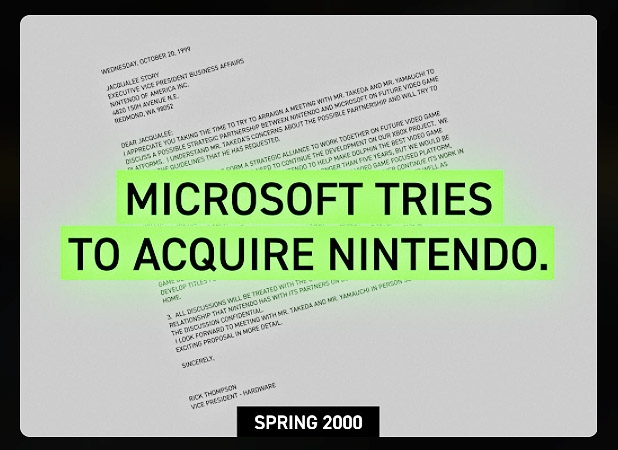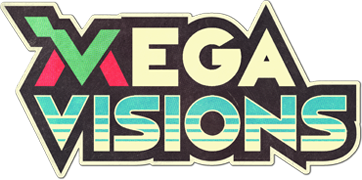Microsoft published a letter from the time it tried to buy Nintendo
The deal that never came changed gaming history forever.

Yesterday, Microsoft revealed a letter to Nintendo from the time it tried to acquire the gaming giant in 1999.
Microsoft published the document as part of the new online interactive Xbox museum. The online museum celebrates Xbox’s 20th anniversary by showcasing the console brand’s historical events. Although the online museum features many historical artifacts, one of the most interesting documents is a letter that Microsoft sent to Nintendo in 1999.
Rick Thompson, Xbox’s then hardware chief, sent a letter to Nintendo of America’s then business head Jacqualee Story. The letter’s purpose was to arrange a meeting between Microsoft and important Nintendo figures. Specifically, Microsoft hoped to meet with the boss at the time Hiroshi Yamauchi and Nintendo’s hardware chief Genyo Takeda.

Microsoft and Nintendo: the deal that never came
Although much of the document is unfortunately covered by large text, parts of the letter are readable. In the letter, Thompson thanks Story for attempting to arrange a meeting with Takeda and Yamauchi. In addition, he reveals that the meeting’s purpose would have been to agree on a strategic alliance between the two companies. Unfortunately, however, Takeda apparently had some major concerns about working with Microsoft.
Dear Jacqualee, I appreciate you taking the time to try to arraign a meeting with Mr. Takeda and Mr. Yamauchi to discuss a possible strategic partnership between Nintendo and Microsoft on future video game platforms. I understand Mr. Takeda’s concerns about the possible partnership and will try to [obscured] the guidelines that he has requested.
Rick Thompson
Another interesting detail in the letter is the mention of Microsoft’s “Xbox project”. This appears alongside the suggestion that it could help Nintendo with “Dolphin” (GameCube).
In the end, Microsoft’s attempts to both buy and work alongside Nintendo failed. Although Microsoft was certainly disappointed back then, the failed partnership led directly to the Xbox. While it’s interesting to think of what could have been, it’s safe to say things worked out for the best.
Via Eurogamer

